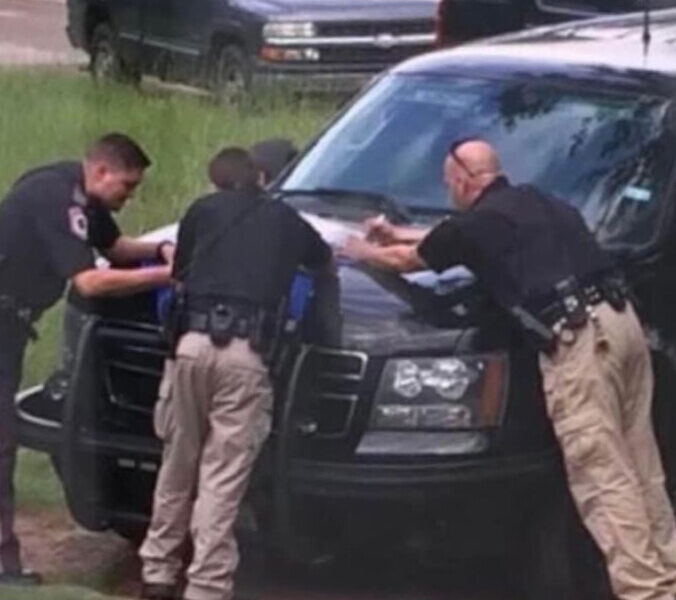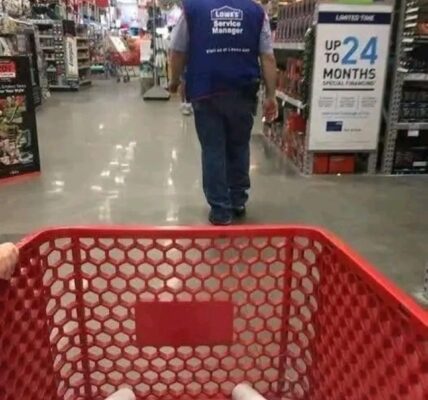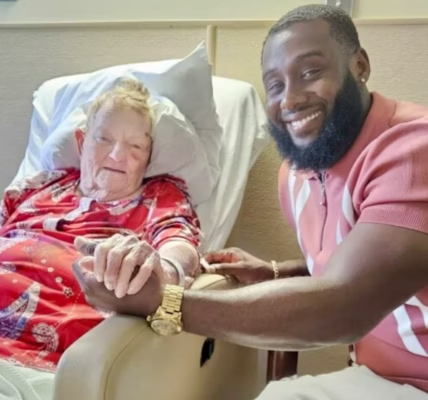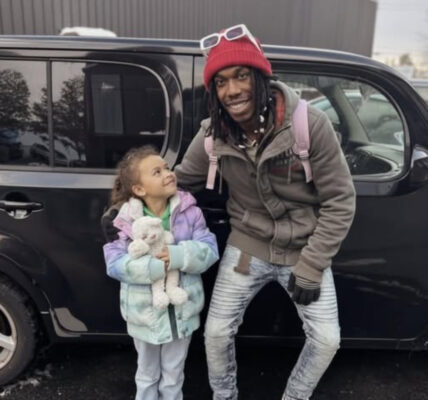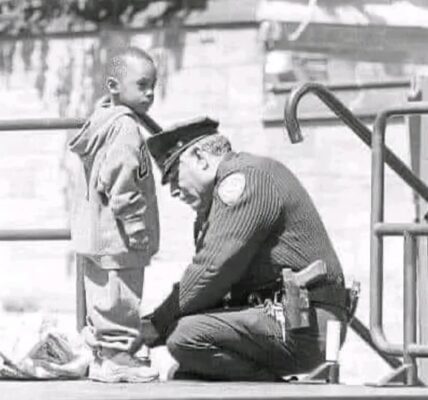Last week was one of the hardest my family has faced in years.
My teenage son, John, has severe autism. He’s sweet and loving, but when he’s overwhelmed, it can feel like the whole world is crashing down around us. That day, something seemingly small—a missing shirt—triggered a meltdown so intense, so frightening, I had no choice but to call for help.
Let me back up.
John has a deep connection with Blue’s Clues, and his favorite character of all time is Joe. For him, it’s not just a show. It’s comfort. It’s structure. It’s safety. And on this particular day, all he wanted was to wear his “Joe shirt.” But it was missing—maybe in the laundry, maybe misplaced. I couldn’t find it fast enough.
That was all it took.
The disappointment built into frustration. The frustration became anger. The anger turned into a full-blown rage. If you’ve never witnessed an autistic meltdown, it’s hard to describe. It’s not a tantrum. It’s not acting out. It’s raw emotion, unfiltered and overwhelming—fear, sadness, confusion—all trapped inside a young person who doesn’t have the words or tools to manage what he’s feeling.
He was throwing things. Screaming. Hitting himself. My heart was breaking.
And so, with shaking hands and tears already forming, I called 911. It was a decision I didn’t take lightly. I was scared—not just of what was happening, but of what could happen when the police arrived.
There’s been so much talk, so many stories in the news, about interactions between law enforcement and people with disabilities. I didn’t know how they would handle it. Would they understand? Would they be patient? Or would they escalate a situation that already felt like it was teetering on the edge?
Within minutes, six officers arrived.
They approached calmly—no shouting, no drawing weapons, no attempts to overpower. Instead, they stood back. One of them, a young woman, looked at me gently and said, “We’re here to help. What do you need from us?”
I explained what was happening, who John was, what triggered him, and what would only make things worse.
And then something amazing happened.
They listened.
They didn’t assume they knew better. They didn’t brush me off. They asked questions. They watched how John responded to tone, space, and movement. They asked what I thought would help him calm down.
They stayed with us—not to control, but to support. And eventually, slowly, the storm began to pass.
When it was finally quiet and John was sitting on the floor, wrapped in a blanket and breathing heavily, the officers quietly left.
Or so I thought.

Less than an hour later, three of them came back. But this time, they weren’t responding to a crisis.
They had gone out and purchased a plain blue shirt.
Not just that—they brought along a neighbor of ours, Jenn, who’s great with crafts. And together, these uniformed officers sat in my kitchen with fabric markers, trying their best to recreate the striped shirt Joe wears on Blue’s Clues.
Let me say that again: three police officers, on their own time, hunched over my kitchen table, carefully drawing crooked stripes on a kid’s T-shirt.
They didn’t do it for show. There were no cameras, no press, no pats on the back. They just cared.
And when they handed the finished shirt to John—who by then was calm and quiet—his face lit up. He hugged it to his chest, then carefully put it on. For the first time that day, he smiled.
Was it the best replica? No. The lines were wavy. The colors didn’t quite match. But it didn’t matter.
Because in that moment, they gave him dignity.
They gave him recognition.
They gave him the feeling of being seen and understood.
They gave me something too.
Relief. Gratitude. A reminder that goodness still exists, even in the places we least expect to find it.
These officers didn’t just de-escalate a meltdown. They stepped into our lives with empathy, creativity, and grace. They didn’t see a “problem.” They saw a person.
To the officers who responded that day: thank you. From the deepest place in my heart. Thank you for listening. Thank you for respecting my son’s unique needs. Thank you for the blue shirt. Thank you for your patience. And thank you for reminding me that behind those badges are real human beings—capable of extraordinary kindness.
You are the kind of heroes we need more of in this world.
And as for John? He still wears that shirt. The lines may fade over time, but the love sewn into them never will.
